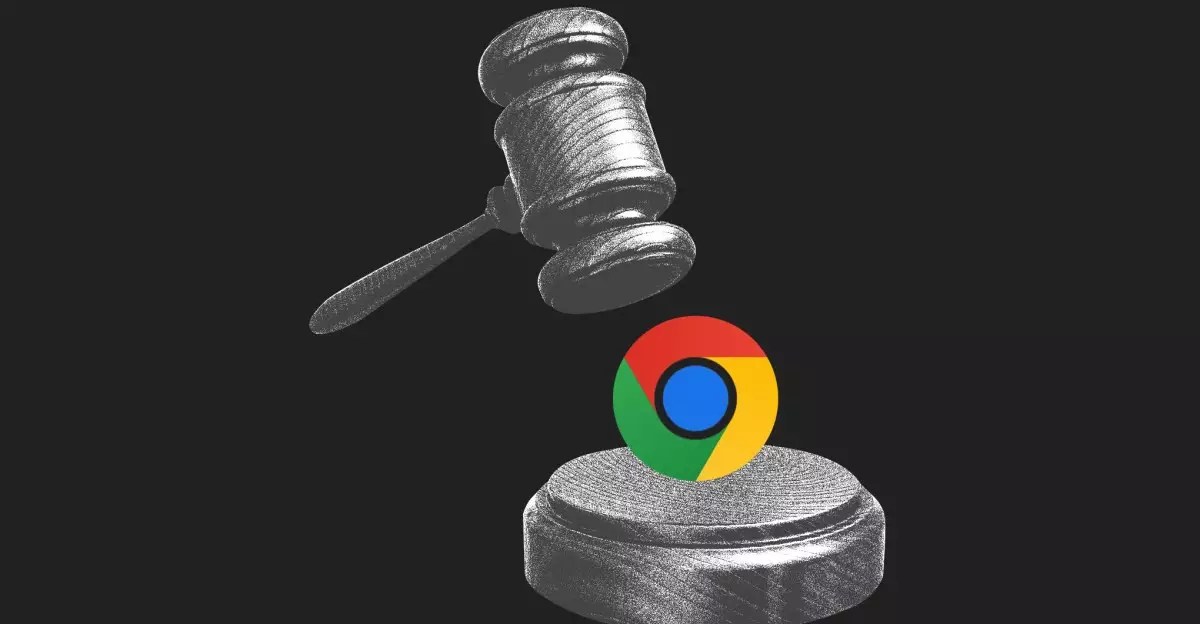Recent revelations from the ongoing antitrust trial have shed light on the controversial relationship between Google and Samsung, particularly concerning the integration of the Gemini AI assistant into the Galaxy S25. This arrangement, initially appearing as a strategic partnership, is rooted in Google’s precarious position after being deemed an illegal monopoly by Judge Amit Mehta. The chaos brewing in the courtroom signals the urgency with which the Department of Justice (DOJ) aims to scrutinize not just Google’s market practices, but the broader implications for consumer choice in a reorganizing tech landscape.
According to testimonies by Peter Fitzgerald, Google’s Vice President of Platforms and Device Partnerships, a substantial monetary investment is made monthly to ensure that Gemini is preinstalled as the default AI assistant on Samsung devices. This move comes in the wake of a serious antitrust ruling, putting Google’s operations under additional scrutiny. The transparency or lack thereof regarding the financial specifics remains a concern; the undisclosed “enormous sum” deposited to Samsung opens the door to speculation about what constitutes fair business practices in a competitive tech market.
The Impact of a Monopolistic Culture
Google’s aggressive stance on securing exclusive deals contrasts sharply with their public image as a promoter of open-source technology and innovation. The case against them highlights a severe duality—their efforts to enhance user experience through Gemini, while simultaneously wielding their financial might to restrict competitors from making inroads in the market. The DOJ’s probing into Google’s conduct is not incidental; it reflects a broader societal demand for fairness in technological advancements.
When Google was found in violation of antitrust laws, its previous arrangements with titans like Apple and Samsung became critical points of discussion. The testimony points to deals that prioritized proprietary technology over consumer freedom—essentially displacing the native Bixby assistant for Gemini, a transactional decision that raises ethical questions about user agency and the spirit of competition.
Challenging the Status Quo
With other firms like Microsoft and Perplexity vying for a spot as default AI alternatives, the trial evidences a competitive dynamic that’s not just about software capabilities, but also about the financial underpinnings of such decisions. The revelation that amendments to Google’s agreements were proposed just before the trial speaks volumes about the pressure mounting on Google to conform to legal standards. It begs the question: will there be a paradigm shift toward more equitable partnerships, or will the current power dynamics persist under a different guise?
Google’s alleged consideration of more restrictive agreements is also troubling. If they require partners to install Gemini with proprietary services like Search and Chrome, then consumer choice is not merely compromised; it is systematically undermined. The essence of innovation lies in diversity—having choices that foster competition encourages improved user experiences and technological strides.
A Call for Regulatory Reform
Critics of Google’s practices urge the DOJ to implement substantive changes that would curtail monopolistic behavior in the tech space. The ongoing trial, with its revelations, underscores the dire need for regulatory bodies to reevaluate their stances on tech monopolies and devise actionable strategies to dismantle self-serving partnerships that stifle competition. If Google is to come out of this debacle unscathed, they must address the critical questions raised about their practices and future intentions.
Moreover, the implications of this case extend beyond Google and Samsung—they affect the entire digital ecosystem. The outcome could catalyze a shift towards a more equitable tech environment where new entrants can thrive without the looming shadow of established giants like Google.
As we observe the developments in this trial, one truth becomes clear: the relationship between technological advancement and ethical market practices is more intricate than ever. If justice prevails, we may see a reimagined tech landscape that truly empowers consumers and innovators alike, dismantling the ticking time bomb of monopolistic reigns.


Leave a Reply